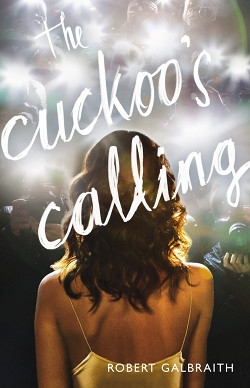How Do We Judge Books Written Under Pseudonyms?
 I have a confession to make: I had the opportunity to read an advance copy of The Cuckoo’s Calling, when it was still simply a debut novel by Robert Galbraith, and I chose not to.
I have a confession to make: I had the opportunity to read an advance copy of The Cuckoo’s Calling, when it was still simply a debut novel by Robert Galbraith, and I chose not to.
Although I have done some writing about mysteries and thrillers, they aren’t my primary area of focus, so I tend to be very selective about the ones I do read. And nothing about the catalog description of The Cuckoo’s Calling persuaded me this was a book I had to pick up. It sounded, by that account, rather generic: A down-on-his-luck private investigator lands a case that places him among the rich and powerful like a bull in a china shop and so forth. I read more books per year than the average person, and I still didn’t have time, or feel like making time, for one of those stories.
I had almost completely forgotten about the novel when news reports revealed that The Cuckoo’s Calling was, in fact, the work of J.K. Rowling, published under a pseudonym. I spend my days observing the publishing industry, so that gave me greater reason to find the book’s existence worth noticing.
The idea, as I understand it, was that Rowling had hoped to see how this novel might be viewed in and of itself, without reference to her previous literary output. Up until the moment of revelation, the answer appeared to be that the book was not viewed very much at all. It had gotten some notice in the advance trade publications, which aim at a degree of comprehensiveness in their attention to new releases, but the pockets of the mainstream media that address books hadn’t paid much, if any, attention to it, and comparatively few copies had sold. In and of itself, the market performance of The Cuckoo’s Calling did not herald great things for Robert Galbraith’s career.
After Rowling was forced into the spotlight, however, the novel’s sales skyrocketed. That raised several questions, one of them being: Had a good novel gotten lost in the shuffle because nobody recognized the name on the cover?
I feel confident in telling you: No, that’s not what happened.
13 November 2013 | better bookends |

 Our Endless and Proper Work is my new book with Belt Publishing about starting (and sticking to) a productive writing practice.
Our Endless and Proper Work is my new book with Belt Publishing about starting (and sticking to) a productive writing practice. 
